great northern railway
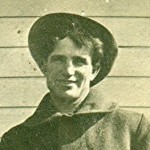
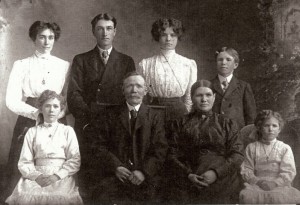 When I think of my grandfather, Allen Luther Spencer, who was my dad, Allen Lewis Spencer’s dad, I usually think of his carpenter days with the Great Northern Railroad. That is because that was the job he held for probably most of his working years. I have seen a desk that he made, and it is beautiful, but of course, there weren’t many, or maybe not any, desks on railroad trains. Mostly he made things like seats, probably, unupholstered, which I would find extremely uncomfortable these days. I have ridden on trains from that era, and those old bench seats were not meant for long trips. Still, the workmanship is interesting, and they were well designed. I don’t know what kind of seats or other things my grandfather build, but I know that he was a talented carpenter.
When I think of my grandfather, Allen Luther Spencer, who was my dad, Allen Lewis Spencer’s dad, I usually think of his carpenter days with the Great Northern Railroad. That is because that was the job he held for probably most of his working years. I have seen a desk that he made, and it is beautiful, but of course, there weren’t many, or maybe not any, desks on railroad trains. Mostly he made things like seats, probably, unupholstered, which I would find extremely uncomfortable these days. I have ridden on trains from that era, and those old bench seats were not meant for long trips. Still, the workmanship is interesting, and they were well designed. I don’t know what kind of seats or other things my grandfather build, but I know that he was a talented carpenter.
Grandpa met my grandmother, Anna Schumacher Spencer, through her brother, Albert Schumacher, who was his good friend. Once he got to know the family, he did his best to be a good son-in-law to my great grandparents, Carl and Albertine Schumacher, and brother-in-law to the younger kids. My great grandparents had a 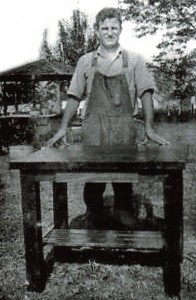 ten-acre lake on their property in those days, but it wasn’t really anything the kids could exactly enjoy, so my grandfather decided to seed the lake with fish, so they could go fishing, and it would provide food for the family for years to come. He also built a flat-bottom boat so the kids could actually go out on the lake to do their fishing. The boat isn’t surprising, since he was a carpenter, but seeding the lake. Who knew that he knew anything about that?
ten-acre lake on their property in those days, but it wasn’t really anything the kids could exactly enjoy, so my grandfather decided to seed the lake with fish, so they could go fishing, and it would provide food for the family for years to come. He also built a flat-bottom boat so the kids could actually go out on the lake to do their fishing. The boat isn’t surprising, since he was a carpenter, but seeding the lake. Who knew that he knew anything about that?
Life wasn’t always easy for my grandparents. They went through a number of tough years in history. It’s hard for me to believe, but my grandpa was born just fourteen years after the Civil War ended. Our nation had witnessed its first Presidential assassination (later, there would be four more, and of these, my grandfather would be alive for two). The nation was likely still reeling from the Lincoln assassination in 1865, when in 1881, James Garfield was assassinated, followed by William McKinley in 1901. In my lifetime, we have had one successful assassination, when President Kennedy was assassinated. The identity of the perpetrator or perpetrators is still a source of contention on that one to this day. There have been plots and attempts on most presidents, but we may not have heard of most of them. Politics can be a dangerous game.
My grandparents also lived through World War I and II, as well as the “Roaring Twenties” and the Great Depression. Grandpa spent time farming, as well as the oil fields of Texas, the lumber industry of Northern Minnesota, and the Great Northern Railroad. He even did a little time in the fur trade, trapping a number of animals, including skunks (wow), but I don’t think he found that to be very successful…and I’m sure the smell 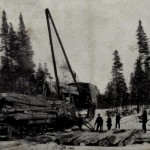
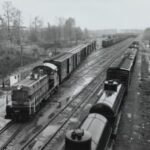 was not his favorite thing either. Looking back at Grandpa’s life, I would have to say that he led an “interesting” sort of life. He had, what could be classified as several careers before he retired. I never met my grandfather. He passed away in 1951. I think that when I meet him in Heaven, I will spend quite some time asking him about his life. I think that as a “history buff,” I will really find his life an interesting story. Today is the 144th anniversary of my grandfather’s birth. Happy birthday in Heaven, Grandpa Spencer. We love and miss you very much.
was not his favorite thing either. Looking back at Grandpa’s life, I would have to say that he led an “interesting” sort of life. He had, what could be classified as several careers before he retired. I never met my grandfather. He passed away in 1951. I think that when I meet him in Heaven, I will spend quite some time asking him about his life. I think that as a “history buff,” I will really find his life an interesting story. Today is the 144th anniversary of my grandfather’s birth. Happy birthday in Heaven, Grandpa Spencer. We love and miss you very much.
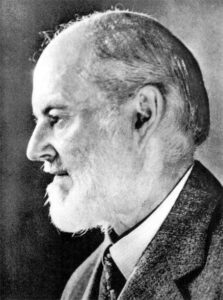 We have all heard of the Rolls Royce, and these days it is a car that is close to my heart, not because I own one, but because I’m pretty sure there are family ties to my son-in-law, Travis Royce and now, my daughter, Amy Royce, and their children, Shai and Caalab. I don’t know that for sure, but I have a hunch, and it’s not just the name. Time will tell as I research further.
We have all heard of the Rolls Royce, and these days it is a car that is close to my heart, not because I own one, but because I’m pretty sure there are family ties to my son-in-law, Travis Royce and now, my daughter, Amy Royce, and their children, Shai and Caalab. I don’t know that for sure, but I have a hunch, and it’s not just the name. Time will tell as I research further.
Sir Frederick Henry Royce, 1st Baronet, OBE, was an English engineer. OBE stands for “The Most Excellent Order of the British Empire and is a British order of chivalry, rewarding contributions to the arts and sciences, work with charitable and welfare organizations, and public service outside the civil service.” Sir Royce was famous for his designs of car and aeroplane engines with a reputation for reliability and longevity. Of course, we probably know much more about the product that brought him fame, than we do the man and his partners, who brought that product to life.
Sir Frederick Henry Royce was born in Alwalton, Huntingdonshire, near Peterborough on March 27, 1863, to James and Mary Royce (née King). He was youngest of their five children. His father ran a flour mill which he leased from the Ecclesiastical Commissioners. Unfortunately, the business failed, and the family moved to London. After his father died in 1872, Royce had to go out to work selling newspapers and delivering telegrams after only one year of formal schooling. With such a beginning, it would seem quite unlikely that Sir Royce would ever amount to anything, but in 1878 with the financial help of an aunt, Royce 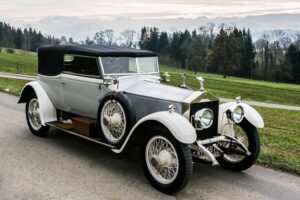 was able to start an apprenticeship with the Great Northern Railway company at its works in Peterborough. Unfortunately, the money ran out after three years, and Royce was again forced to change careers. He worked for a short time with a tool-making company in Leeds, and then returned to London and joined the Electric Light and Power Company. In 1882, he moved to their Liverpool office and began working on street and theatre lighting.
was able to start an apprenticeship with the Great Northern Railway company at its works in Peterborough. Unfortunately, the money ran out after three years, and Royce was again forced to change careers. He worked for a short time with a tool-making company in Leeds, and then returned to London and joined the Electric Light and Power Company. In 1882, he moved to their Liverpool office and began working on street and theatre lighting.
Following a few other ventures that produced minimal success, Royce partnered with Charles Rolls (1877–1910) and Claude Johnson (1864–1926) and founded Rolls-Royce. The new company initially focused on large 40-50 horsepower motor cars, the Silver Ghost and its successors. Royce produced his first aero engine shortly after the outbreak of the First World War and aircraft engines became Rolls-Royce’s principal product. While the Rolls Royce aeroplane engine was a much-needed product during the war, it will always be the famous Rolls Royce automobiles that people will remember. They are beautifully elegant, and to be desired by those who have the means to afford them, as well as those who wish they could afford them.
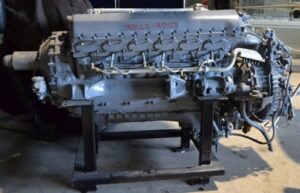
Henry Royce married Minnie Punt in 1893, but they had no children. The couple separated in 1912. Royce, who lived by the motto “Whatever is rightly done, however humble, is noble,” was appointed OBE in 1918, and was created a baronet, of Seaton in the County of Rutland, in 1930 for his services to British Aviation. Sir Royce’s health began to fail him in 1911 and he was finally forced to leave his factory in the Midlands at Derby. He took a team of designers and moved to the south of England, while spending winters in the south of France. He died at his home in Sussex on April 22, 1933. With no children, the baronetcy became extinct on his death.

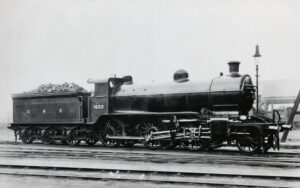 I never met my grandfather, Allen Luther Spencer, because he passed away on October 16, 1951, and I was born in 1956. Grandpa worked for the Great Northern Railway as a carpenter. You might wonder what a carpenter would do on the railroad, but if you think about it, the seats on those trains were wooden, and as such, they could break or age, and would need repairs or replacement. That is just one part of the trains and stations that is made of wood. Grandpa’s train carpentry comes to my mind every time I ride the 1880 train in the Black Hills. The work done to restore those old cars, which would have been in my grandfather’s era, makes me think of the kind of work he must have done. The work in those train cars is beautiful. It’s not all fancy, but it’s very nice work. I don’t suppose all the work he did would have been in train cars from the Gilded Age, but I’m sure it was nice for the time.
I never met my grandfather, Allen Luther Spencer, because he passed away on October 16, 1951, and I was born in 1956. Grandpa worked for the Great Northern Railway as a carpenter. You might wonder what a carpenter would do on the railroad, but if you think about it, the seats on those trains were wooden, and as such, they could break or age, and would need repairs or replacement. That is just one part of the trains and stations that is made of wood. Grandpa’s train carpentry comes to my mind every time I ride the 1880 train in the Black Hills. The work done to restore those old cars, which would have been in my grandfather’s era, makes me think of the kind of work he must have done. The work in those train cars is beautiful. It’s not all fancy, but it’s very nice work. I don’t suppose all the work he did would have been in train cars from the Gilded Age, but I’m sure it was nice for the time.
Grandpa also made furniture, and in fact was really pretty good at it. I wish I could have seen some of the things he made. As a carpenter for the railroad, you know he had a talent for woodworking. I’m sure that in his day, many people made their own furniture, and the best ones developed a real talent for it. There are a number of people in our family who have inherited that talent, and with the proper tools and great imaginations, they have gone further than what Grandpa did. I’m sure grandpa would have been shocked at all the things that can be done with wood these days, but I would love to have something he made, nevertheless.
Grandpa’s work on the Great Northern Railway afforded his kids, as dependents, a free pass to ride the trains whenever they wanted to. They just had to show the pass and they could go between their farm in Holyoke, Minnesota and Superior, Wisconsin. They loved it, and my dad, Allen Spencer, loved trains until the day he went home to Heaven, and beyond. Of course, having a pass didn’t stop my dad and my Uncle Bill Spencer from 
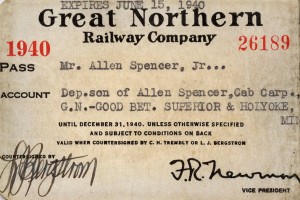 hopping the train…a big no-no, but to them, a lot of fun. I sometimes wonder why they didn’t take away their passes, but I guess they figured that “boys will be boys” and after all they had a pass. They loved having their dad work for the railroad, because they loved the trains. Today is the 143rd anniversary of Grandpa Spencer’s birth. Happy birthday in Heaven, Granda Spencer. We love and miss you very much.
hopping the train…a big no-no, but to them, a lot of fun. I sometimes wonder why they didn’t take away their passes, but I guess they figured that “boys will be boys” and after all they had a pass. They loved having their dad work for the railroad, because they loved the trains. Today is the 143rd anniversary of Grandpa Spencer’s birth. Happy birthday in Heaven, Granda Spencer. We love and miss you very much.

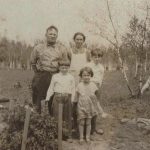 I never had the opportunity to get to know my Grandpa Allen Luther Spencer, because he passed away before my parents were married, and 4½ years before I was born. Life was not always easy for my grandfather. His first marriage ended in divorce, following the death of his daughter, Dorothy, which was quickly followed by the birth of his son, Norman. The loss of a child can be so devastating, that many people never recover, and many marriages fail. It was a dark time for him, until he met my grandmother.
I never had the opportunity to get to know my Grandpa Allen Luther Spencer, because he passed away before my parents were married, and 4½ years before I was born. Life was not always easy for my grandfather. His first marriage ended in divorce, following the death of his daughter, Dorothy, which was quickly followed by the birth of his son, Norman. The loss of a child can be so devastating, that many people never recover, and many marriages fail. It was a dark time for him, until he met my grandmother.
After their marriage and four more children, Laura in 1912, Bill in 1922, Allen (my dad) in 1924, and Ruth in 1925, it looked like his life was on the right track again. Of course, like many other people, this good period was followed by the Great Depression. Thankfully, my grandfather was a carpenter (mostly for the Great Northern Railway), and as near as I can tell, had a job throughout the Great Depression. Still, times were tough, and I’m sure the wages were not what a family of six really needed to live. Most people struggled during the Great Depression.
My grandfather was a product of his circumstances, and the times he lived in, and the two things together created a stressful life for him and his second family. Much more was expected of the two older children, and feelings were raw at times. The younger two children really never remember his being so hard on them. Grandpa had specific ideas of things the children should learn and do. All of the children learned to play the violin and some learned the guitar. My Aunt Laura never really liked learning to play the violin, but the rest of the children did…or at least they did later. Grandpa Spencer may not have been an easy teacher, or maybe it’s just hard to learn from your dad.
No matter what kind of a man my grandfather was, and whether circumstances led to his troubles, his children loved him very much. Like any family, kids and parents “lock horns” sometimes. That doesn’t mean you don’t love them. When my grandfather was dying, my dad drove from Casper, Wyoming to Superior, Wisconsin, 980 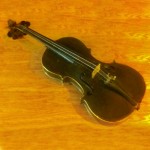
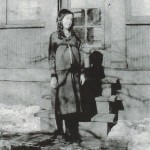 miles, in 17 hours. That might not seem like a big deal these days, but cars didn’t do what they can do now, and speeds were different then too. Needless to say, my dad made it home to see his dad before he passed away, and he was always thankful that he made the trip, and always thankful that he saw his dad one more time. I only wish I could have met him and gotten to know him too. I feel like I missed out, on my grandfather and my Grandma Spencer, who passed away when I was 2½ months old. Happy birthday in Heaven Grandpa Spencer. I look forward to meeting you someday soon.
miles, in 17 hours. That might not seem like a big deal these days, but cars didn’t do what they can do now, and speeds were different then too. Needless to say, my dad made it home to see his dad before he passed away, and he was always thankful that he made the trip, and always thankful that he saw his dad one more time. I only wish I could have met him and gotten to know him too. I feel like I missed out, on my grandfather and my Grandma Spencer, who passed away when I was 2½ months old. Happy birthday in Heaven Grandpa Spencer. I look forward to meeting you someday soon.
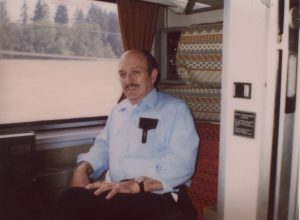 My dad, Al Spencer loved trains. I’m sure it all started with his dad’s job as a carpenter on the Great Northern Railway. Dad and his siblings rode the trains to school and such. It was one of the perks of his dad’s job. I know most kids like trains, but I think Dad maybe liked them more than most kids. He grew up around them.
My dad, Al Spencer loved trains. I’m sure it all started with his dad’s job as a carpenter on the Great Northern Railway. Dad and his siblings rode the trains to school and such. It was one of the perks of his dad’s job. I know most kids like trains, but I think Dad maybe liked them more than most kids. He grew up around them.
On May 1, 1971, a very exciting event took place, especially for my dad. It was on that day that the Amtrak train was born. It was originally established by the Congressional Rail Passenger Service Act, which consolidated the United State’s existing 20 passenger railroads into one. Of course, most of us know that the Amtrak train has since had a long history…49 years to be exact. Back then the Amtrak train line served 43 states with a total of 21 routes. These days they not only handle traditional interstate passenger rail in 46 states, but they also operate high-speed trains along their busiest route, the Northeast Corridor from Washington DC, to Boston. With more than 500 destinations throughout a 21,000 mile system, Amtrak has grown to 33 routes across America. Nevertheless, the Amtrak train system was always focused on getting from Point A to Point B safely and swiftly, even in 1971.
From the time that first Amtrak rolled out of the station, my Dad was hooked. He knew he wanted to take a trip by way of that train. During the early years of the Amtrak, we heard a lot about it. It wasn’t going to be a trip that we went on as a family, but rather a special trip for Dad and Mom. That trip would finally happen in about 1991, when Mom and Dad took the Amtrak from San Diego to Seattle. My sister, Caryl Reed and her family lived there at the time, and they would spend time visiting with them after the train ride. My dad was so excited!! In fact, he was the epitome of “the kid in the candy shop.” I can see why he would be so excited. After 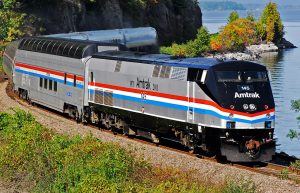 all, he had waited twenty years for that trip. I suppose that prior to that time, he couldn’t think of any reason to take the trip, but when my sister moved to Bremerton, Washington, the time had come. Mom and Dad made many trips to Washington in those years, but that trip on the Amtrak Train really was the most exciting way for them to travel.
all, he had waited twenty years for that trip. I suppose that prior to that time, he couldn’t think of any reason to take the trip, but when my sister moved to Bremerton, Washington, the time had come. Mom and Dad made many trips to Washington in those years, but that trip on the Amtrak Train really was the most exciting way for them to travel.
I can picture my dad now. Not how he looked. I have a picture of that. No…I can picture how he felt. He was that “kid in the candy store” again. I could picture him feeling like he was back in Superior, Wisconsin, hopping the train, even though he had a pass to ride the train.
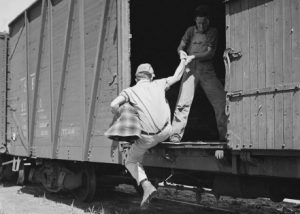 When my dad, Allen Spencer and his brother, Bill Spencer were young boys going to school, their dad, Allen Luther Spencer worked for the Great Northern Railway. Because they lived a good distance from school, the boys and their sister, Ruth Wolfe had a dependent pass to ride the train to school. That pass didn’t stop the boys from “hopping” the train…in true Hobo fashion. Of course, we know that “hopping” a train is illegal now, but back then it wasn’t. My dad, Uncle Bill, and Aunt Ruth had passes however, so
When my dad, Allen Spencer and his brother, Bill Spencer were young boys going to school, their dad, Allen Luther Spencer worked for the Great Northern Railway. Because they lived a good distance from school, the boys and their sister, Ruth Wolfe had a dependent pass to ride the train to school. That pass didn’t stop the boys from “hopping” the train…in true Hobo fashion. Of course, we know that “hopping” a train is illegal now, but back then it wasn’t. My dad, Uncle Bill, and Aunt Ruth had passes however, so 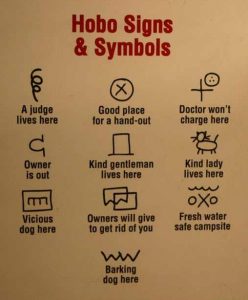 while they weren’t supposed to hop the train, it wouldn’t have been illegal anyway, because they had a pass…just not to hop the train.
while they weren’t supposed to hop the train, it wouldn’t have been illegal anyway, because they had a pass…just not to hop the train.
During the Depression years, there were a lot of Hobos. The railroad was a quick way to get to jobs far away…and it wasn’t technically illegal…just frowned upon. President Roosevelt even created the 1933 Federal Transient Service, which built 600 shelters alongside the trains, to provide food, board, and medical care for working migrants…aka hobos, or at least part of them. As organized crime began using the railway for it’s own purposes, these services were shut down, and “hopping” a train became illegal. Nevertheless, illegal or not, there are actually tons of resources 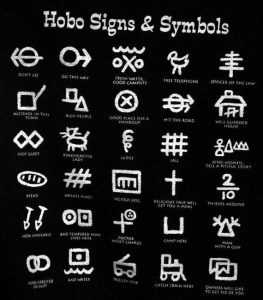 online to help hobos, and most hobos carry smart phones, and even laptops, so they can take advantage of the online forums and Facebook pages available to them. I looked at these online sites, and I found that they call themselves misfit travelers.
online to help hobos, and most hobos carry smart phones, and even laptops, so they can take advantage of the online forums and Facebook pages available to them. I looked at these online sites, and I found that they call themselves misfit travelers.
Over the years, hobos have developed their own code and language. I found that to be very interesting. Life on the streets, and especially train hopping can be a very dangerous kind of lifestyle. Sometimes, people living on the streets and traveling by hopping trains, need help…even if they find themselves in a position whereby they have to bend the law a little. Th codes and the language they developed help them maneuver this world in a little bit more safe way. I’m not condoning breaking the law, but these people are already there. They just took a wrong turn, and now they need help to make it, and hopefully make it back.
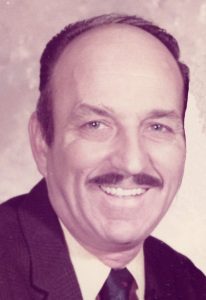
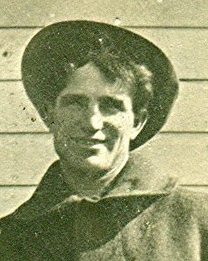 Over the years, I can recall that my dad, Allen Lewis Spencer had a number of hammers, of differing handles and sizes…like most men do, but for as long as I can remember, one hammer was always there. It wasn’t that this hammer was made of gold, or even looked fancy. It had a plain handle, but I suspect it is a hardwood, and not a simple pine. The handle is a medium toned wood, but it may have darkened with age and use. It also has a scorch mark about five inches long along one side, that happened when it was laid a little too close to a campfire. Dad rescued it just in the nick of time. He had to save it, you see. It wasn’t just any hammer…it was his dad’s hammer, and with his dad’s passing, the hammer was given to my dad.
Over the years, I can recall that my dad, Allen Lewis Spencer had a number of hammers, of differing handles and sizes…like most men do, but for as long as I can remember, one hammer was always there. It wasn’t that this hammer was made of gold, or even looked fancy. It had a plain handle, but I suspect it is a hardwood, and not a simple pine. The handle is a medium toned wood, but it may have darkened with age and use. It also has a scorch mark about five inches long along one side, that happened when it was laid a little too close to a campfire. Dad rescued it just in the nick of time. He had to save it, you see. It wasn’t just any hammer…it was his dad’s hammer, and with his dad’s passing, the hammer was given to my dad.
Most wooden handled hammers don’t have a long handle life. That is probably the main reason that many, if not most hammers are made of metal these days. This wooden handled hammer is different, however. My grandfather, Allen Luther Spencer was a carpenter for the Great Northern Railway. His job was to build and repair seats, trim, walls, and floors…anything made of wood on the trains of the Great Northern Railway. He also made tables and chairs for his own family, and he did it all with that same hammer that my dad inherited upon his passing. Unfortunately, I never knew my grandfather, because he passed away before my parents were married. That leaves my sisters and me with only the stories we have heard from family and my Uncle Bill Spencer’s family history. I do know that while my grandfather’s work might never have been in the caliber of my cousins Gene Fredrick, and his sons, Tim and Shawn, he did make some nice things. What impresses me the most is that any work needing a hammer was done by the same hammer that my dad inherited, and that even after all the use my dad has give the hammer, it is still in 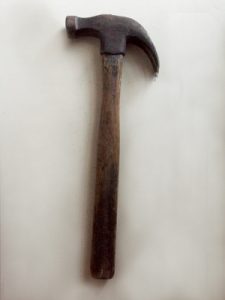
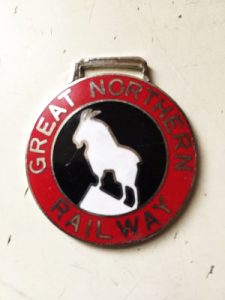 amazing shape. Things were just made well in those days.
amazing shape. Things were just made well in those days.
My dad took great care of that hammer, because it was as much a treasure to him as it is to me. It is so much more than just a hammer, it was my dad’s hammer, and his dad’s hammer. The handle still has the oil from Dad’s hand on it, making that spot darker than the rest of the handle, and I can tell you, that I will not be using the hammer, nor will I clean off that oil, or sand off the scorch mark, or the one little sliver of wood that was torn off of the handle at some point. You see, I think the hammer is just perfect the way it is, and I plan to display it with no changes to it at all, because it was my dad’s hammer, and to me…that makes it priceless.

